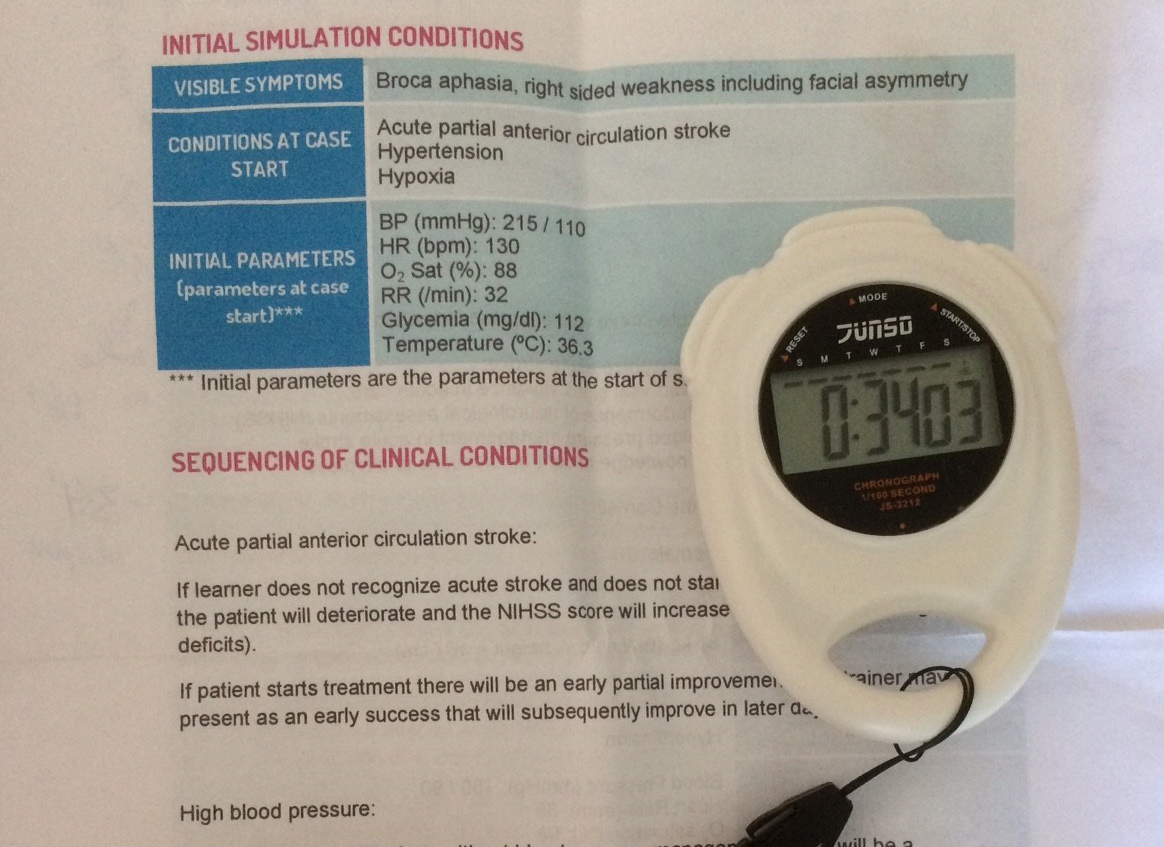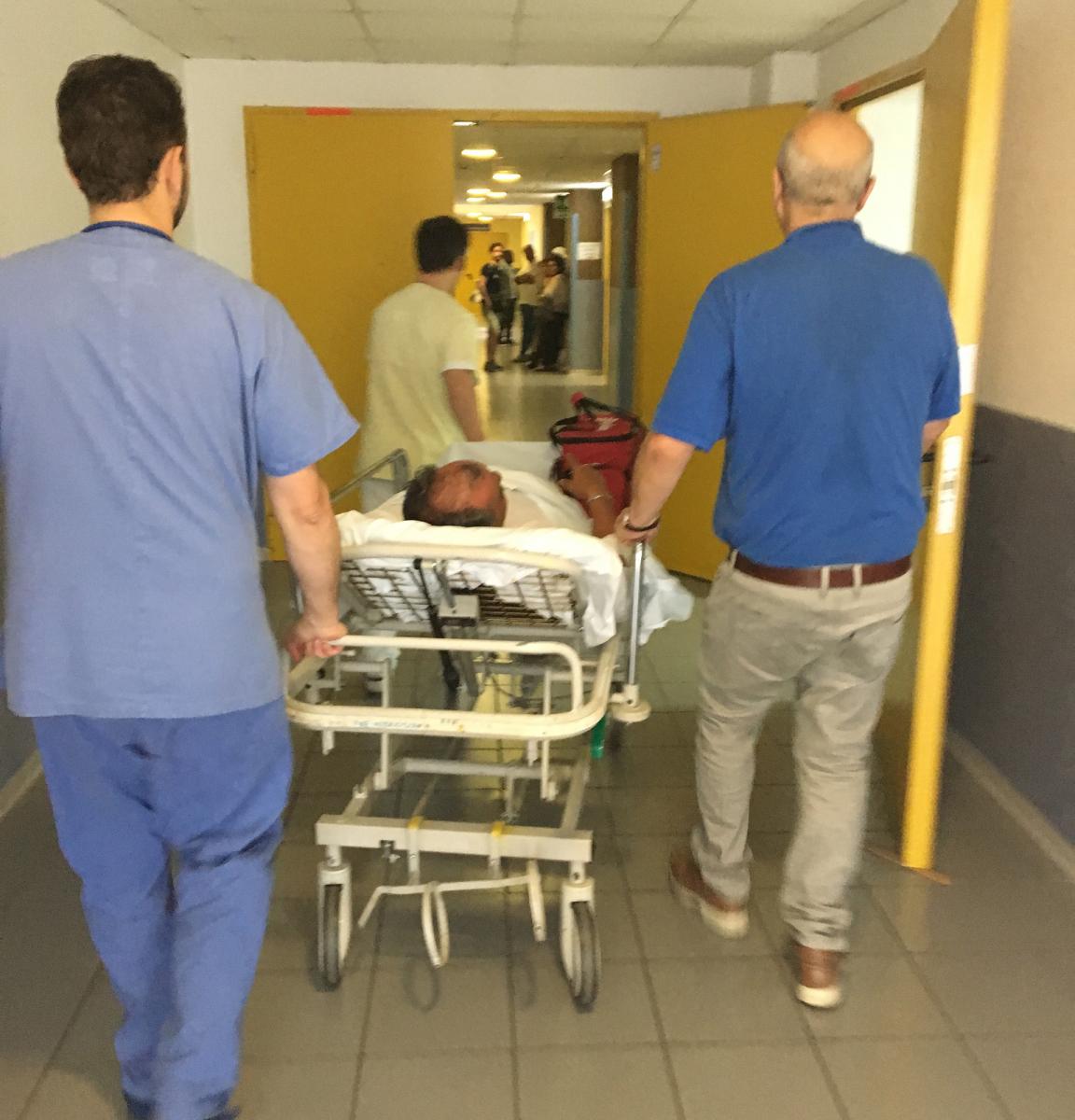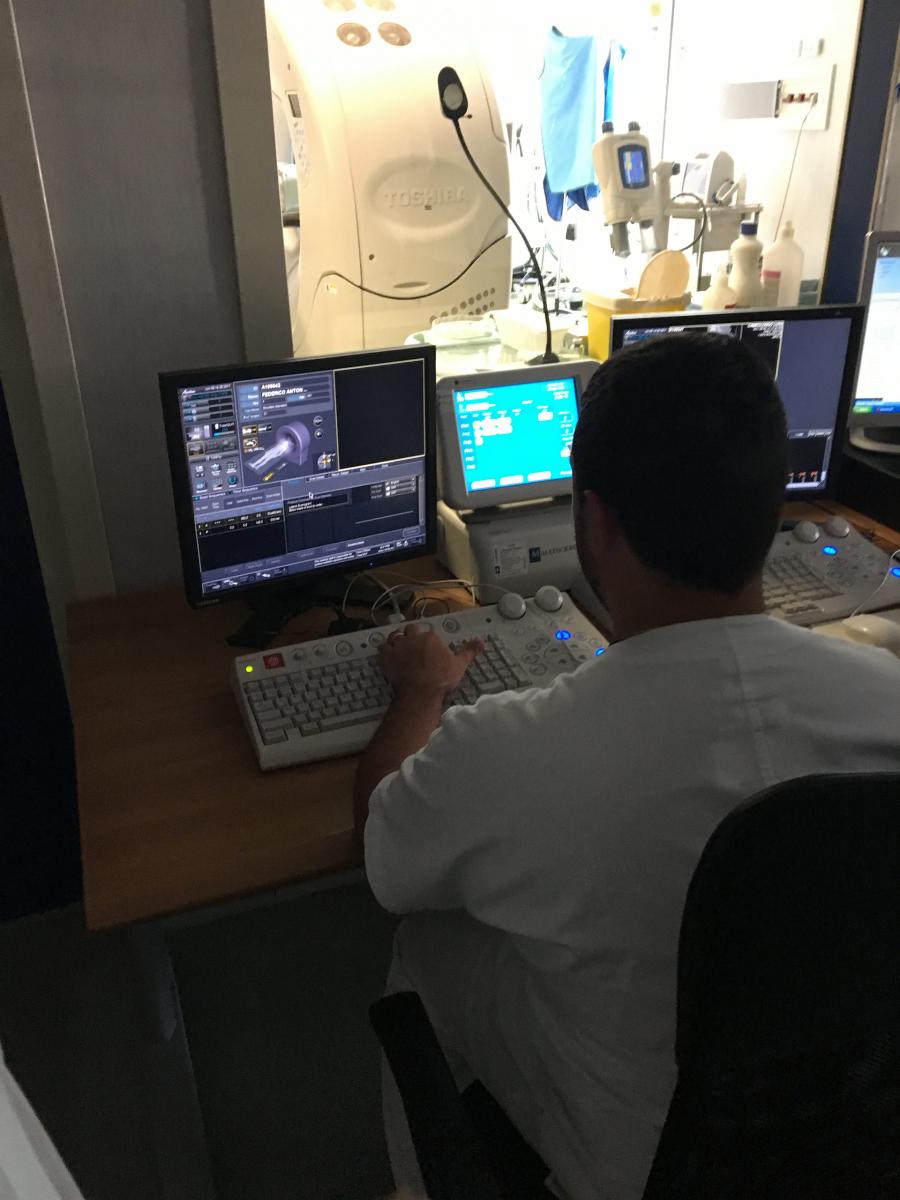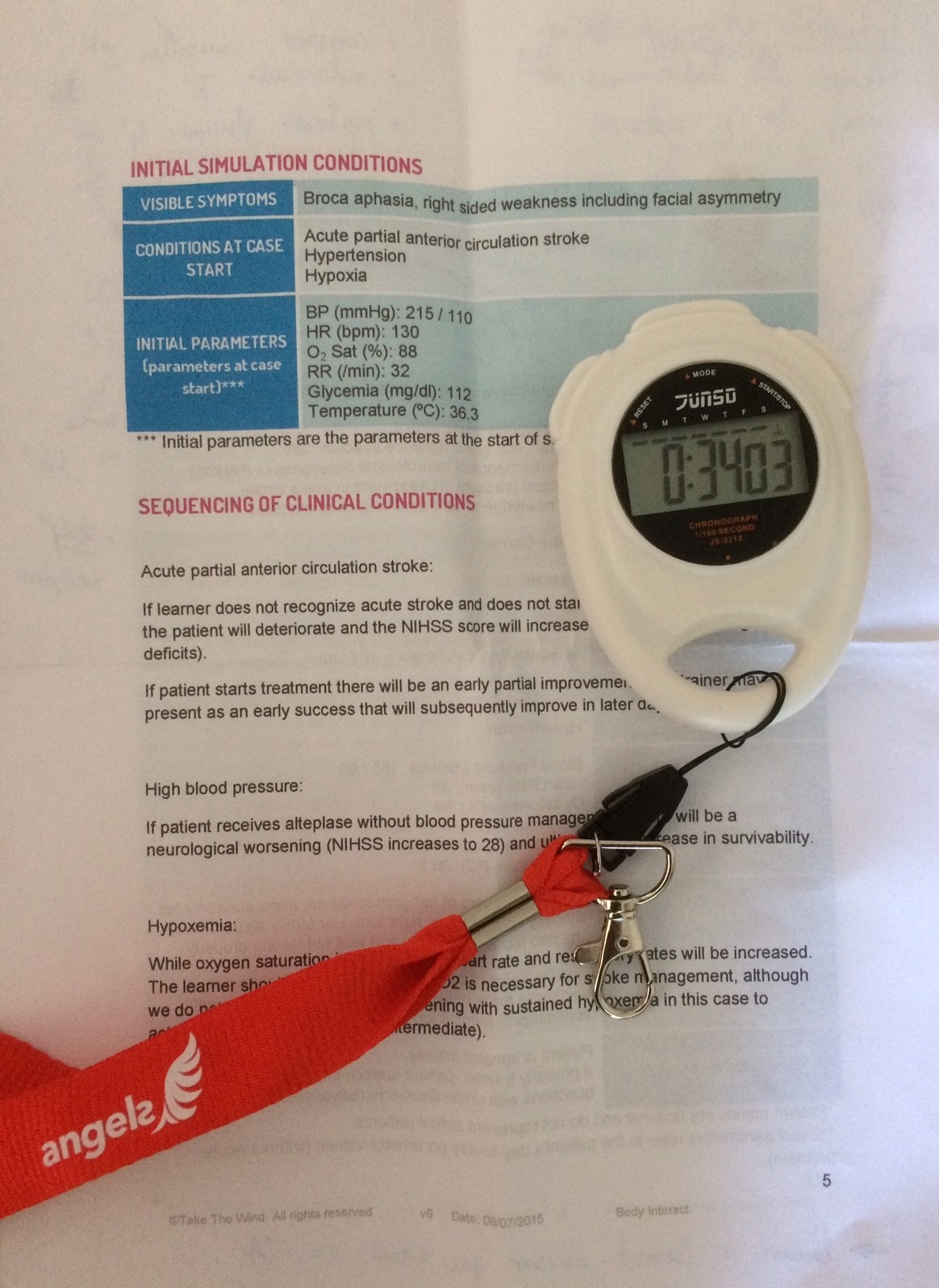In the previous edition of the Angels Journey we reported on our first set of simulations done in hospitals across South Africa. Now with half a year of experience in Europe we are starting to see the stories coming in, and the results are fascinating.

Recently in a hospital in Babastro in the Aragon region of Spain a stroke team that had a 113 minutes average DTN time managed to complete their first simulation in just 34 minutes despite some technical complications like the tele stroke system not functioning. Some may say that an improvement from 113 minutes to 34 minutes is not reproducible in real life, but just as the team wanted to start the second simulation a real code stroke call came in. With some of the improvements fresh in their minds the team managed to treat the real stroke patient in an all-time record of 40 minutes.
In a simulation in Romania the team was ready to treat the patient within 30 minutes but then had to wait for the lab results for more than 20 minutes before a treatment decision could be made. As a result of this experience the hospital is now exploring various ways to get around this problem including getting the bloods drawn in the ambulance, putting “Priority” stickers on the blood vials, or perhaps investing in a point of care INR device. Small changes that could make a big difference.
At a hospital in the Calabria region of Italy the team managed to half the treatment time from 100 minutes to 50 minutes from the first to the second simulation.

As in the Romanian example 30 of these 50 minutes were wasted waiting for blood results as the team was ready to treat after 20 minutes. Can you imagine the effect it could have on their outcomes if they could solve this problem and consistently treat patients in 70 minutes less than they are currently? The team is now super motivated and believes it can be done.
The most striking example perhaps has been in a hospital in the Umbria region of Italy that came into the training with an average DTN time of 159 minutes. Before the simulation they set a target that they wanted to try and treat the dummy patient in 40 – 60 minutes. To their surprise, probably just because they took some time to think about their pathway before the simulation, they managed to treat the patient in 36 minutes. The team was ecstatic and could not believe what they had just achieved. Despite the amazing achievement they had long discussions on what they need to improve in their daily practice and how that could be done. Then, like in the Spanish example, as they were preparing to do the second simulation a real stroke call came in.

The Stroke team had a quick discussion to determine which of the changes they could realistically implement immediately and waited for the patient at the door. It turned out they managed to treat the patient in an unbelievable 45 minutes. This is a quarter of the time that it took them on average to treat patients days before and just shows the transferability of this type of training into real life scenarios.
These simulations really have an amazing effect on the morale of stroke teams and don’t only help them highlight points of improvement; they also show the team the effect that small changes can make on overall treatment times. Changes that they then, with the help of the Angels consultant, can start work on implementing in real life.


